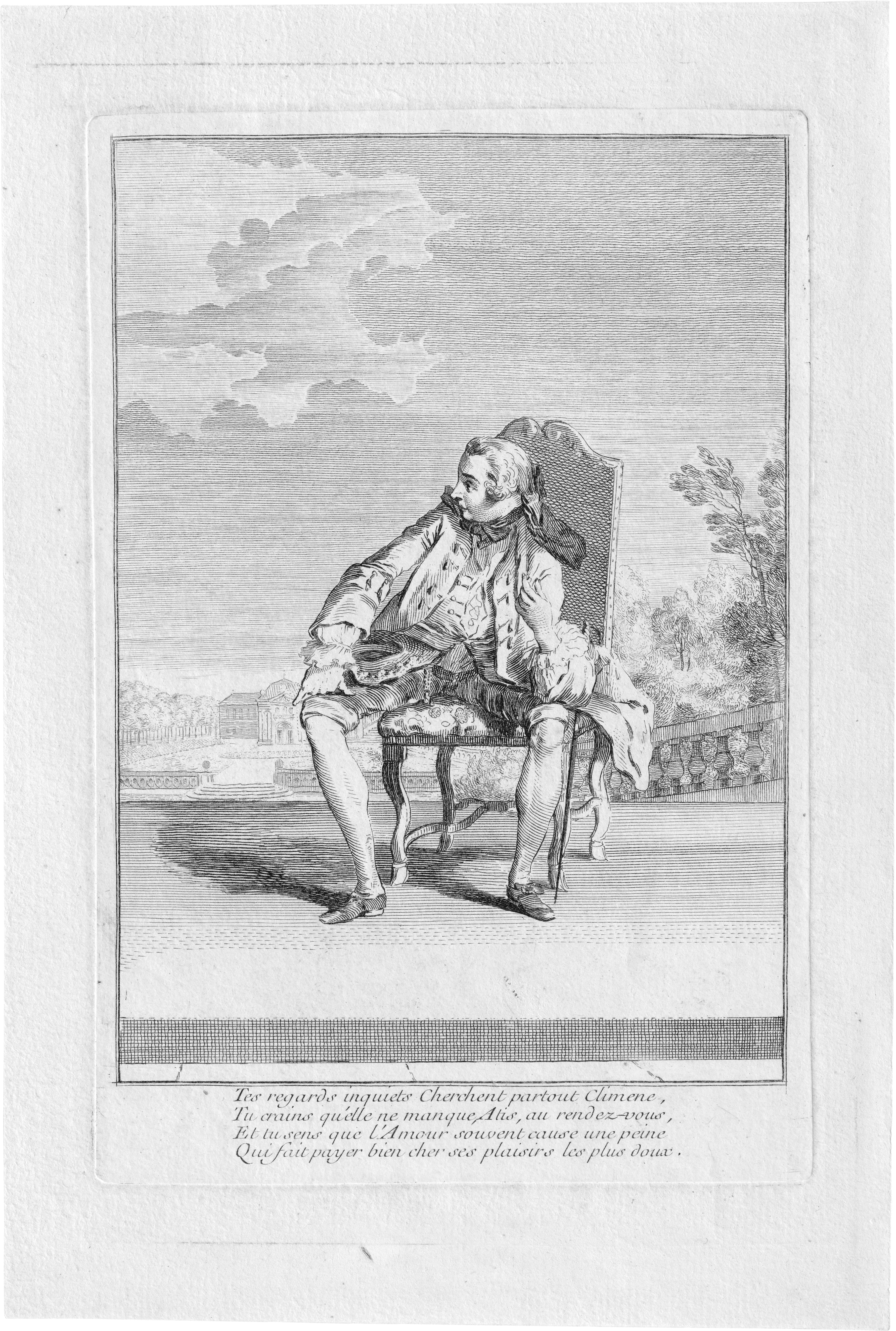Loading the page ...
Jacques Philippe Lebas
(1707-1783, Paris)
“Tes regards inquiets cherchent partout Climène...” (Portrait of an actor, sitting on the stage). Etching. 22 x 14.7 cm. 1739. Inventaire du Fonds Français 16.
Jacques Philippe Lebas was taught at an early age by the architectural engraver, Antoine Hérisset, and encouraged by Nicolas-Henri Tardieu and Pierre Crozat, from whose collection he engraved paintings. Lebas was admitted to the Academy in 1743 and appointed Graveur du Cabinet du Roi a year later. He worked after his own designs and reproduced works by Teniers and other 17th century Dutch artists as well as by contemporaries such as Wattau, Lancret, Boucher, Greuze, Chardin, Lorrain and many others. Together with Cochin he produced the series Les Ports de France after Vernet in 1760-67. Lebas exerted considerable influence as the teacher of some of the foremost engravers of the second half of the 18th century, among them Charles-Nicolas Cochin the Younger, Simon François Ravenet, Jean-Michel Moreau, Reinier Vinkeles and William Wynne Ryland.
This rare print shows a gallantly dressed actor sat on a stage against the scenic backdrop of a Baroque garden. His inquiring gaze is directed impatiently to one side, the posture of his body with his arms supported on his knees indicating that he has probably been on the lookout now for some time. The four lines of verse below the image inform the observer that it is a young woman whose appearance the cavalier so eagerly awaits. The lines are probably based on an eclogue by Jean de La Fontaine (1621-1695), a writer famous primarily for his fables, in which the young Atis woos the beautiful shepherdess Climène, who resists his advances, however. The caption expresses the sorrow and pain that Climène’s unrequited love causes him. De La Fontaine’s poem belongs to the literary genre of the idyll, a term designating an epic form of poetry, rendered mostly in verse or prose and partly in dialogue, which describes a sensitive, peaceful, modest, Arcadian life in a world that is both safe and harmonious. Idyllic poetry is characteristic of bucolic poetry, the subject of which is the peaceful life of shepherds. Lebas’ subtly observed and masterfully executed scene was the thirteenth in a series of prints, all of which he engraved after designs by Boucher, Lancret, Parrocel and Van Loo. The series entitled “Livre de Desseins qui représentent les parties du corps humain et des figures entières” was published in 1739. A very fine impression with margins. Minor traces of ageing, otherwise in excellent condition.
